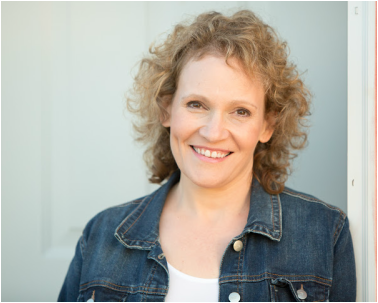
Well, let me first say that I am honored to have the opportunity to bring Vivienne to life. Also, not having to cook an entire supper on stage (as Shirley did) is a big change for this go-round!
But this is not a one-woman play. It is a beautifully unique, layered ensemble piece where one person does a lot of the talking.
How do you prep for a role like this one?
I prepped for this role pretty much like I do for every role…it just took longer. First, I read through the script several times and discovered as much about Vivienne, her family, and her relationships as I could just from the text.
I did some research and talked to medical professionals, care givers, and family members dealing with Alzheimer’s.
Then, of course, I spent a couple of months before rehearsals began pounding the lines into my aging brain. This is important because the real work of rehearsal—the discovery of the character, the relationships, and the story--can’t happen with a script in hand.
And the rehearsal process was amazing. This play has become something entirely different—larger, more engaging, and more delightful—than I ever expected. And that’s thanks to Jordan’s vision and Sarah and Nick’s joyful creativity.
What is Vivienne all about? How would you describe her as a person? Any particular insights as you begin this process?
Vivienne is “all that.” She’s bright and articulate, efficient and effective, and used to being in control of her life.She’s loving, creative and a problem-solver. The conflict revealed by the play is her sudden inability to predict, to solve, to control this significant obstacle in her life.
But that’s not all.She also loves her mother, and she’s losing her. And, despite the anguish and anxiety and anger that come in turns, she’s trying desperately to keep on smiling.
What do you like most about this play?
I love Vivienne’s sense of humor that is revealed through her story telling, her loving commitment to family—I just really like her as a person. I also love the idea of using creative myth-making as a coping or healing process.
How would you to describe this play to our audience?
The script is lovely, articulate and creative. But the script is not all. There are layers of story “telling” that are multi-dimensional, that will engage you in unexpected ways…and will leave you smiling through (just a few) tears.
What would you like them to leave thinking/ talking about?
I’m guessing that we’ll have many audience members for whom Vivienne’s story is familiar—who may be currently coping with some of these same challenges.I’d like them to leave feeling heard and understood, and determined to be kind to themselves.
I’d also like them to pat themselves on the back for supporting Vermont Stage’s commitment to new playwrights!





